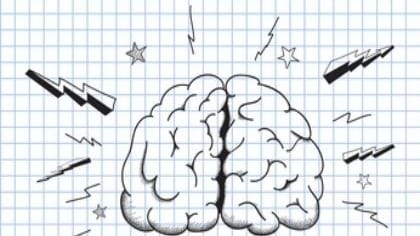Tests for Alzheimer’s /Dementia: The Pros and Cons
Tests for Alzheimer's/ Dementia: strengths and weaknesses of each test and the effect it has on diagnosis. Cognitive and functional assessments, global assessments, and self-administered tests all play a role in detecting Alzheimer's.

Tests for Alzheimer’s/ Dementia :Strengths and weaknesses of each test and the effect it has on diagnosis
Alzheimer’s Test–the Pros and Cons of Each
Administration of more than just one Alzheimer’s test is necessary to accurately determine whether someone has dementia. Physicians utilize a combination of physical and neurological testing in addition to lab work before diagnosing a patient with Alzheimer’s or another type of dementia. Cognitive assessment tests such as the Mini-Mental Status Exam, The Alzheimer’s Disease Assessment Scale (cognitive subsection) and the Clinical Dementia Rating Scale evaluate a patient’s memory skills, ability to comprehend when asked to respond to commands and speech/language capabilities.
Functional assessment examinations include the Progressive Deterioration Scale, the Instrumental Activities of Daily Living and standard Functional Assessment Screening Questionnaire. The FASQ contains 15 self-assessment questions intended to evaluate the level of physical disability affecting a patient’s daily routine. Scores are rated on a zero to four scale, with four indicating that the patient is unable to perform the task. Some functions assessed on this Alzheimer’s test include the ability to get in and out of a bed or chair and the extent to which they can perform job tasks if still employed.
Designed to assess a person’s mental health, global assessment examinations, the Global Deterioration Scale, the Clinical Interview-Based Impression and the Clinical Global Impression of Change are widely implemented in determining the existence and severity of psychiatric disorders. In addition, these types of tests can help differentiate dementia symptoms from mental illness by contrasting cognitive and memory impairments with personality and behavioral disorders commonly affecting dementia patients.
Self-Administered Geocognitive Examination
SAGE is a recently developed examination intended for home use that may assist in detecting Alzheimer’s dementia while in its early stages. Because health providers realize that many people suffering cognitive issues unrelated to aging fail to report memory problems to their physician in a timely manner, the creation of SAGE is thought to expedite the identification of dementia without the need for lengthy screenings by primary care doctors. Although SAGE is not a diagnostic tool, it may provide doctors with a reference point regarding the development of dementia is patients.
Questions comprising SAGE consist of picture naming, language and math skills testing and assessment of right brain abilities that involve copying geometrical shapes. Studies of patients completing the SAGE examination found that the test detected cognitive difficulties in 80 percent of 250 participants.
However, several problems can downgrade the reliability and validity of a self-administered Alzheimer’s test such as SAGE. These issues include:
- Results of self-administered tests cannot be compared to standardized tests because they are not timed
- People taking the test can cheat on answers by checking clocks, calendars and dictionaries for the correct answers
- Scores can be misinterpreted by non-professional test takers which can lead to erroneous diagnoses that may embarrass people further into concealing cognitive problems
- Failing to receive treatment in the early stages of Alzheimer’s dementia allows the disease to progress at a much rapid rate
A self-administered written Alzheimer’s test is meant as a starting point for health professionals to use when determining the presence of dementia in a patient. These tests should never be viewed as clinically accurate evaluations of an individual’s mental health condition.
More on Tests for Alzheimer’s /Dementia
Animal Naming and Clock Drawing
Many dementia tests include questions that ask the test taker to write down 10 to 12 animal names from memory and draw a clock face along with proper placement of numbers. These questions represent a simple way to examine a patient’s ability to access the brain’s long-term memory (the basal forebrain, hippocampus, cortex and secreted proteins called brain-derived neurotrophic factors).
Cognistat
Cognistat is a neurobehavioral cognitive status examination developed by several medical doctors that provides highly relevant information concerning the level of dementia affecting a patient. In addition to helping health-related professionals counsel family members and patients, Cognistat was designed to point out areas of cognitive impairment that could benefit from rehabilitative therapy by assessing attention span, consciousness levels, orientation, language, memory and reasoning skills.
According to Cognistat’s website, the test should take 10 minutes to complete for people unaffected by dementia and up to 30 minutes to complete for those with mild to moderate dementia.
SLUMS St. Louis University Mental Status Test
Created in 2006 by geriatricians working for St. Louis University, SLUMS is intended to detect mild cognitive decline in individuals by assessing their abilities in the following areas:
- Immediate recall with interference
- Attention and orientation
- Numeric calculation
- Executive functioning and visuospatial ability
- Delayed recall with interference
SLUMS appears to be more effective in detecting MCI (mild cognitive decline) than the MMSE (mini mental status exam). Research reveals that it has a 90 percent accuracy rate compared to the MMSE’s 60 to 70 percent accuracy rate.
While the efficacy of an Alzheimer’s test is generally conclusive, a definitive diagnosis should not be based on the results of one test. The primary benefit of using written and oral assessments , whether self-administered or given by a health professional, is the ability of physicians to detect the onset of dementia in its earliest stages so that treatment with AChE medications can begin as soon as possible.
Our Resources section can help you find the information and tools that you need. We have courses, videos, checklists, guidebooks, cheat sheets, how-to guides and more.
You can get started by clicking on the link below. We know that taking care of a loved one is hard work, but with our help you can get the support that you need.
Click here to go to Resources Section now!
http://www.ncbi.nlm.nih.gov/pubmed/2930345
http://www.stlouis.va.gov/STLOUIS/GRECC/SLUMS_FAQs.pdf
You might also like this article:













